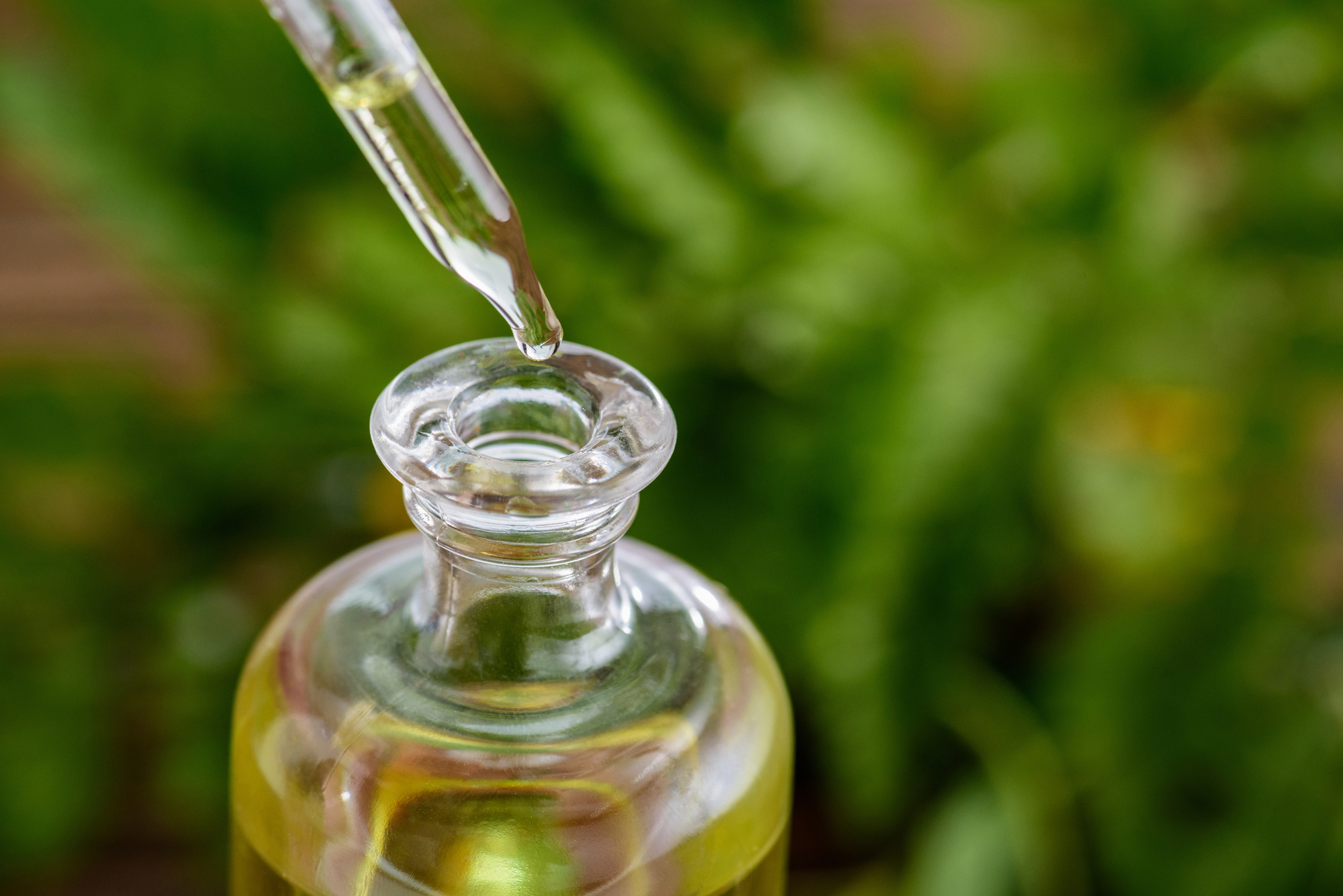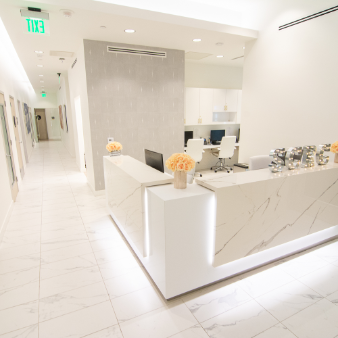

The legal status of marijuana is complex and varies by state. Federally, it’s still illegal but in 2015 the FDA approved research on CBD. Currently, CBD is regulated as a supplement which makes it relatively easy to obtain (easier than Marijuana) but makes it medically more ambiguous as supplements don’t have strict regulations about concentration, dosage, etc. As CBD becomes more widely acceptable and researched, more and more are looking to it as a viable fertility supplement.
So much is still unknown at this point. More research needs to be done. But here’s what we’ve learned so far about how CBD impacts fertility.
What is CBD?
THC (tetrahydrocannabinol) is the most active compound in marijuana. It’s what is responsible for causing the “high” typically associated with smoking marijuana.
CBD is short for cannabidiol and it is derived from the hemp plant. It is one of the active compounds in marijuana. It doesn’t cause any high and, so far, there is no evidence that CBD has harmful effects on health. In fact, CBD is reported to have therapeutic uses for a range of ailments, including:
- Inflammation
- Insomnia
- Anxiety
- Depression
- Epileptic seizures
- Chronic pain
- Cancer symptoms
We know very little right now about CBD affects fertility and pregnancy. Research on marijuana use has shown that smoking marijuana can decrease ovulation and IVF success. Research has also found that marijuana has a negative impact on male fertility, including significant reduction (30%) in sperm concentration and count. All of this research, however, included marijuana with THC.
CBD has been studied much less and despite all the health claims coming from CBD dispensaries and online forums, there simply isn’t enough research to confirm that CBD can boost fertility or resolve infertility. There also isn’t enough research on its impact during pregnancy.
Right now, CBD is classified as a supplement. Supplements are not given a high level of scrutiny, which means labels can be misleading. One report showed that nearly half of CBD products contained more CBD than was listed on the label, and one-quarter had less. Nearly one-fifth of the products contained THC.
When you can’t regulate dosage of a produce, it’s hard to regulate its safety or its effectiveness.
{{cta(‘6f44aa47-afd0-4cb6-a8b0-1c4ad978fc46’)}}
CBD, Endocannabinoids and Fertility
The list of ailments that CBD can treat seems to grow by the day. If it can alleviate seizures, chronic pain and anxiety, surely it can help fertility, right? It’s a good question, but we’re far from having a clear answer.
The interesting thing about CBD, and one of the reasons it’s thought to be a good product for fertility, is that its chemical structure looks similar to some of the hormones our body produces called endocannabinoids.
We don’t understand a lot about the complex endocannabinoid system (ECS) at this point–it’s a relatively recent discovery still being researched by experts. So far, they’ve linked it to a number of important processes in the body, including pain, immune system responses, sleep and the reproductive system. ECS receptors are what allow compounds like THC and CBD to interact with the body and do things like alleviate pain, inflammation, seizures and stress.
Endocannabinoid receptors have been found in sperm and the female reproductive tract. Because of this, it’s thought that they can improve a sperm’s ability to fertilize an egg, boost ovarian function and follicle maturation. In short, that CBD can be a natural way to boost fertility with minimal negative side effects. There is yet to be strong evidence to support this theory.
There is still much more to learn about the endocannabinoid system, its role in fertility and how it interacts with (and is impacted by) CBD.
Risks of Taking CBD
The risks of taking CBD aren’t all clear. As with any supplement, tell your doctor you’re taking it. They may even have research and guidance to help you in meeting your health and fertility goals.
Still, keep in mind that CBD is a supplement and not strictly regulated. It’s important that if you decide to take CBD, do your research and ensure that it’s the highest quality.
Forms of CBD
If you decide to use CBD, you have a whole range of options to choose from. Some are more dubious than others (CBD-infused water, for example). Some are cheaper, more concentrated, easier to swallow, faster-acting or more easily measured. However you choose to vape, swallow or apply, you have options. Here are some of the most popular:
- Oil. CBD can come as an oil or tincture. As an oil it’s easy to ingest with a dropper or to be rubbed into the skin. It’s one of the fastest-acting forms when dropped under the tongue because it’s quickly absorbed.
- Lotions and Creams. CBD is available as a topical ointment. Most commonly these are used for treating ailments like eczema and joint pain because it has a direct effect on the affected area.
- Gummies and edibles. One of the most popular ways to take CBD, gummies are quick and portable. Dosage is straightforward (no measuring from a dropper) and cost is less than most other forms.
- Vaping. Vaping is another popular option because the substance is quickly absorbed. But user beware: vaping may damage the lung tissue, the oil may contain harmful chemicals.
What Are the Side Effects?
Because so little research has been done, it’s hard to know all the side effects of taking CBD. Nausea, fatigue and irritability have been reported and can interact with certain other medications in a similar way to grapefruit juice. It can also raise levels of the blood thinner coumadin.
Recommendations
There is still relatively little known about CBD and years more research until we know its efficacy and safety, especially when it comes to fertility and pregnancy.
Until we know more, here are a few things you can do to increase your chances of fertility:
- Avoid smoking. We may not know about CBD but THC has been shown to be detrimental to fertility in both men and women. Even vaping CBD oil likely bears more risks than benefits.
- Tell your doctor. They need to know all the supplements you’re taking, especially if it’s CBD.
- Start with a low dose. You don’t know how you will react to CBD or how it will impact your health. Start with a high quality, low dose form. Be cautious.
- Use only high quality products. Anyone can put CBD in an oil and call it a health supplement. You want high quality ingredients with no harmful additives.
CBD may be helpful and it may not. Until we know for sure, use caution, do your research, and talk with your doctor.
{{cta(‘df429f04-a69a-4a74-bb68-769f86b0d60d’)}}



